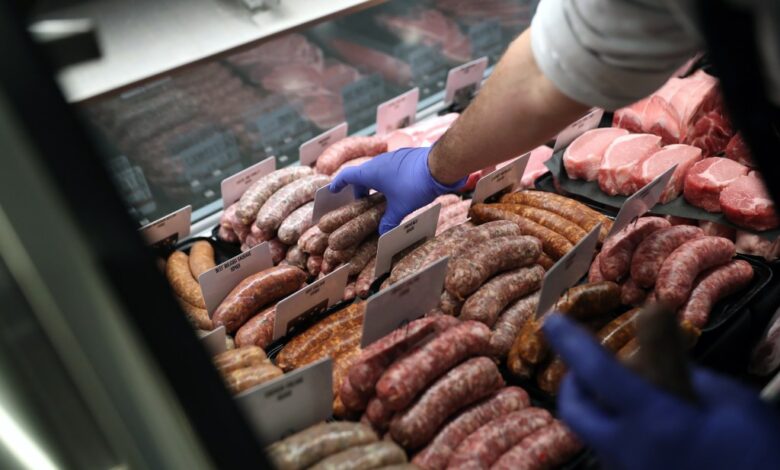Soaring sausage sales could indicate economic turmoil as consumers turn away from costlier meats, expert reveals

As American families battle the impact of rampant inflation, more are resorting to buying sausage as a meat alternative to cut back on consumer spending.
This, however, has some experts worried that the modest growth of sausage sales is indicative of deeper-rooted economic turmoil as the price of necessities continues to climb.
“People at the end of the day are trading down right now,” Kelly Lester, a policy analyst for the Center for Food, Power & Life at the John Locke Foundation told “Fox & Friends” on Thursday. “Budgets are strained and people are really feeling the effects of the last few years of inflation when it comes to the grocery store.”
The Texas Manufacturing Outlet Survey released a report this week indicating the climb in sausage sales can be considered an indication that the economy is struggling more than consumers realize.
“We are seeing modest growth in our category of dinner sausage, as sausage is a good protein substitute for higher-priced proteins and can ‘stretch’ consumers’ food budgets,” the report read.
According to the Bureau of Labor Statistics, sausage is approximately $6 cheaper than beefsteak, providing struggling consumers with a cheaper option. The average price of both sausage and beefsteak has climbed consistently since 2020.
Lester argued that because costs continue to climb, consumers have to make trade-offs to stretch their budgets further. But because they are making those trade-offs, companies and the agricultural industry have and will continue to suffer.
“The reality right now is that everything is up across the board: housing prices, energy prices and food prices,” Lester said. “The basic necessities are up, and they’ve been up cumulatively for years now. And even though the Biden administration will tell you inflation is going down, that doesn’t mean that we’re still not feeling the effects of the last few years.”
“So this means that… companies aren’t going to be receiving as much revenue, which could lead to a downward spiral that could lead to more layoffs and higher prices,” she continued.
Lester also sounded the alarm on how government regulation, supply chain issues and soaring input costs are prompting panic for many farmers nationwide. Those issues are causing food prices to rise and farmers are struggling to make ends meet.
“At the end of the day, farmers… it’s really one of the main industries in which you have to put up collateral in order to get a loan and hope that you get yield that can make up for that loan and hopefully turn a profit,” Lester said.
“And right now, small [and] mid-size farmers aren’t turning any type of profit… they’re having a really hard time, and they’re struggling.”




